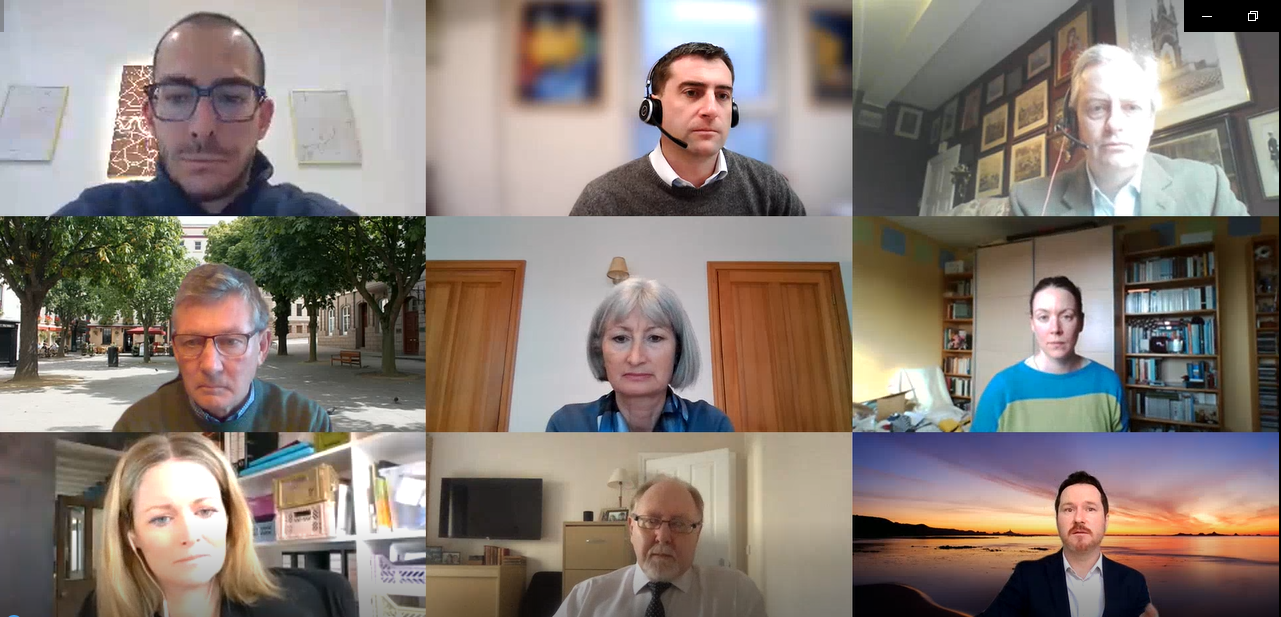In February 2021, Jersey Finance hosted the first family office themed roundtable for 2021. Its first event focussed on the topic of philanthropy.
Attendees discussed the future of philanthropic giving for family offices and what Jersey has to offer from a governance perspective.
Read selected quotes from attendees on the various topics discussed or download our roundtable key takeaways document.
List of roundtable attendees
- Rosalyn Breedy, Partner, Wedlake Bell
- Chris Cotillard, Director, Alex Picot
- Anthony Donatelli, Director, UBS
- Sarah Farrow, Senior Associate, Carey Olsen
- Dr Stuart Gibson, Founder and CEO, Gibson Strategy
- Zillah Howard, Consultant & International Private Client Lawyer, Jersey
- Kevin Lemasney, Head of High Value Residency Engagement, Locate Jersey
- James Maloney, Partner, Farrer & Co
- Robert Moore, UK Director, Jersey Finance
- Victoria Papworth, Director, Coutts
- Rupert Phelps, Partner, Smith & Williamson
- Alice Vink, Senior Associate, Stephenson Harwood
Philanthropy and the next generation
“We’re seeing a much bigger dedication of resource, generally to philanthropic areas. For example, a lot of structures now are using dedicated philanthropy professionals. Some family offices have such large philanthropy arms that they’re almost like a small business sitting within a family office structure” – Sarah Farrow

Read more“One of the areas I first start thinking about is human longevity. And as that extends, it means there can be the next generations [plural]. One of the things I noticed with the next generation family members is they want to [get involved] in a way that is in accordance with what they care about and what matters to them”– Rupert Phelps


“ESG disclosures – whether it’s funds invested in by a family office or if a family office is setting up its own impact funds – family offices should demonstrate leadership in the marketplace by checking that the funds and companies they invest in comply with mandated ESG disclosures.
“This is what reputation management will be about for families going forward. Families have to now explain: What is their ESG position? What philanthropy do they do? What is their role in society? And how do they treat their employees in their businesses? These are all integrated issues for families” – Rosalyn Breedy
Read more
“When we’re talking about philanthropy, we’re really talking about very personal individual issues in terms of getting to grips with what matters to particular people. That, in my experience, is the starting point” – Zillah Howard
“One issue I’ve seen is that the patriarch has a clear vision about what they want to do, and they’ve set up the structures to achieve that. And then, they expect the next generation to carry on the vision and the legacy. But the next generation have slightly different views and want to do things slightly differently. Had there been better conversations between families when they set up the structures, advisors could have built in the flexibility” – Rosalyn Breedy
Read more
Read more“There’s a conversation to have with the next generation about how they have convictions but are looking for experience and connection [with philanthropy]. That challenge will increasingly come from within the family. As advisors, it’s an interesting question for us, as to how we manage and have those conversations with our clients” – Victoria Papworth


“There’s a limited pool of philanthropic capital out there. We know there’s a funding gap to solve the sustainable development goals. We know we need not only philanthropy, but we need other pools such as investment capital to go towards contributing to solving the SDGs*” – Anthony Donatelli
“I think there’s a challenge to all of us as advisors in how we work alongside our clients who are seeking to act in such a purposeful way. We’re seeing lots of our clients coming back to those first principles- deciding what they want to achieve. And in some cases, moving from those very big general goals to do much more change-focussed local projects” – Victoria Papworth
*United Nations Sustainable Development Goals
Read moreCovid-19 and its effect on philanthropic giving

“For one of my local [Jersey] clients, as soon as COVID came along, he teamed up with another high-value resident to purchase a significant amount of respiratory equipment. They got the equipment brought over to the Island and my client, personally, put £200,000 into that venture”
“COVID has underscored that move from recovery to resilience, we see some of our more ambitious clients. They’re now thinking about how they can move from healthcare to livelihoods and understanding how to not just create job support schemes, but how to address unemployment and under-employment in our society”
“Having spoken to family offices and wealthy individuals over the last three to four months, I think the COVID-19 pandemic has made people re-evaluate their lives. It’s not about money. It’s not about giving. It’s very much about can they make a difference”


Read more“A theme that’s becoming very apparent is this societal view of the wealthy and that, in inverted commas, the wealthy should be doing more for those of lesser wealth. And that’s a huge challenge at the moment.
“A lot of the wealthy people want to do this in a very discreet way and will do it through certain structures to protect their privacy. So, they can be doing a huge amount on one hand, but on the other hand, it’s not known generally in society” – Kevin Lemasney
“What I am seeing is an increasing awareness of reputational and transparency aspects to philanthropy. How transparent does somebody want their giving to be? How much are they aware of their own reputation?” – James Maloney
“Clients are looking for tried and tested structures. They want flexibility and the knowledge that their structures are not going to get tied up in red tape” – Alice Vink


